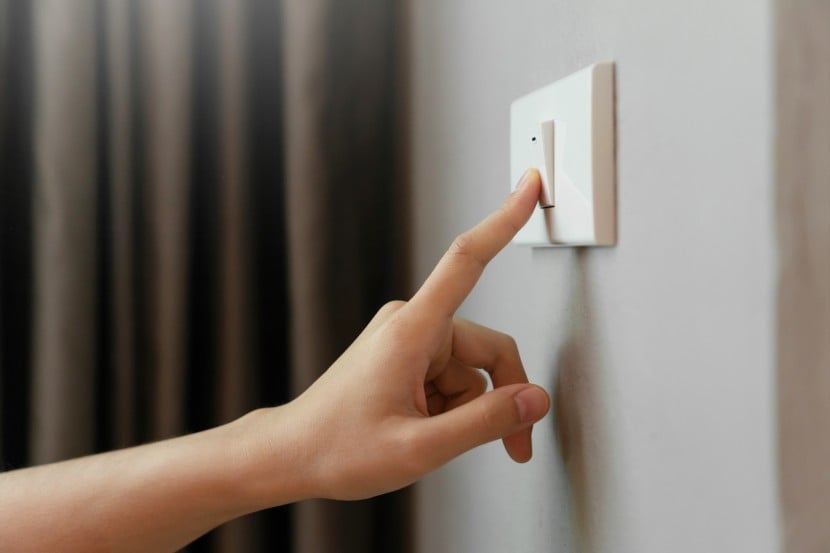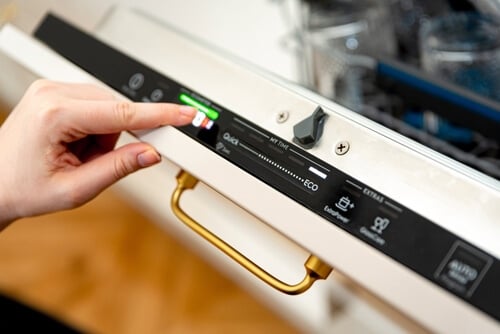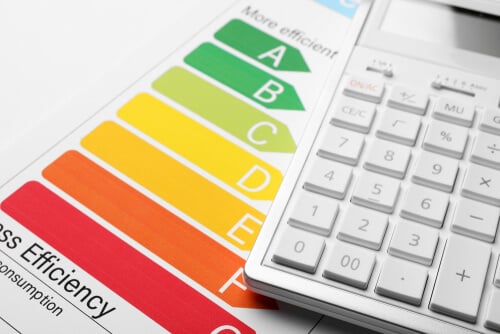Making some simple changes around the home can decrease your monthly gas and electricity bills and potentially help the planet.
We’ve got some easy tips that cost nothing, and others that require a small investment.
We’ve also included tips that involve more of an investment from you that could dramatically improve your home’s energy efficiency. Here’s what you need to know.

Easy ways to save energy for free
Making these small changes could reduce your energy bills by around £424 a year.
Turn the thermostat down
Linda Dodge, Confused.com energy expert, reveals that this is the best way to save on energy:
"Turning your thermostat down by a single degree can save you an impressive £145 per year and is one of the easiest things you can do to save energy. You can combine turning down the thermostat with investing in some simple insulation measures, like thermal curtains, to keep your home warm.
"Once you’ve done this, close your curtains or get thermal curtains and you may not notice the difference in temperature."

Turn your radiator’s dial down
If your radiator has a dial on the side of it - also known as a thermostatic radiator valve (TRV) - turn this down or off in the rooms you're not using. The dials usually have a scale from 0 to 6. Usually, the lowest temperature is 0 and 6 is the highest.
If you can, aim for the lowest setting that's comfortable in the rooms you're using, or 0 in the rooms you're not in. Most radiators use hot water to heat up, so turning the valve down reduces the volume of hot water going through the radiator. This uses less energy and potentially saves you money.
Turn devices off at the plug
Switching appliances off at the plug saves on energy and could save you roughly £65* a year.
So don't let energy vampires suck your funds away. Turn off your electrical items like laptops, TVs, printers and washing machines at the wall.
And make sure you turn off the lights in any empty rooms. This could save you £25* per year.
Wash your clothes at a lower temperature
Washing your clothes at 30 degrees, instead of higher temperatures, uses less energy. This can save at least £34* a year.
You could save yourself even more by getting an Ecoegg, which replaces your detergent completely and lasts for up to 720 washes.
Wash full loads in your dishwasher and washing machine
When washing your clothes, remember to do it in full loads rather than several smaller loads, as this uses less energy.
This also applies to the dishwasher - you should always ensure it's full before turning it on. If you can, reduce your use by 1 run a week. This could save you £17* a year.
Defrost your freezer
Regularly defrosting both your fridge and your freezer helps them run more efficiently in the future. Also, it's helpful to pack your fridge full.
Surprisingly, the more food you stock, the less time the fridge has to run to remain cool.
If you have a lot of empty space in your freezer, you could fill it with bottles of tap water - these are useful in a heatwave!
Save water
Small actions such as showering instead of taking a bath or turning the taps off while you brush your teeth can make all the difference.
The Energy Savings Trust says that taking a 4-minute shower can save you £95* per year. In short, try to avoid running water for a long period of time.
Also, when using the kettle, ensure you only fill it to the amount you need, rather than filling it to the maximum every time. Doing this can save you around £43* pounds a year.
Easy ways to save energy with a small cost
Buy a water-saving shower head
Energy efficient shower heads work by reducing the amount of water used. They do this by mixing the water with air or lowering the flow rate of the water.
Switch to LED light bulbs
The Energy Savings Trust estimates that you could save £55 a year on your electricity bill if you switch to light emitting diode (LED) light bulbs.
They're a common and adaptable light fitting, and should replace dimmable lights and spotlights just as effectively as a regular bulb.
LEDs are also more energy efficient than compact fluorescent lamps (CFLs) - another type of energy efficient bulb. CFLs are a good option though if you can’t find LEDs.
Long-term ways to save energy that need more effort
Changes to your home can also increase its energy efficiency, but they could cost more. You also might need to let your home insurance provider know if you make any home improvements that could increase your home's rebuild cost.
Install a smart thermostat
Smart thermostats work by only heating the rooms you're using, which heats your home more efficiently. You usually control them through your phone, so there's no need to worry about another remote. They could also help save you hundreds of pounds a year.
Insulate your loft
Properly insulating your loft can help keep the heat in your home and the energy bills down.
This doesn't have to apply exclusively to your loft. Insulating any cavity walls around the house can also drastically reduce carbon emissions and your heating bill.
Get a new boiler
Although investing in a new boiler may be pricey, it can make the biggest difference to your home, as heating accounts for roughly 55% of your energy bills.
Therefore, upgrading from a G-rated boiler to one with an A-rating can save you around £300 a year.
Consider a smart meter
A smart meter can help you keep track of the appliances that are using the most energy, and how much they're costing you.
A smart meter sends meter readings to your supplier automatically. So technically you shouldn’t be under or overcharged for your energy use.
You can also forget about scrabbling around in a cupboard trying to read your meter as it does it all for you.
Try energy-efficient appliances
As well as energy-efficient light bulbs, switching to energy efficient appliances can make a world of difference.
For example, an electric oven with an A efficiency rating uses roughly 40% less energy than a B rated oven, according to the Energy Saving Trust.
Also consider energy-efficient dishwashers, fridge-freezers and even eco-kettles to keep your energy consumption down.
Install double glazing
Double-glazed windows use 2 sheets of glass to trap more heat inside your house, allowing you to lower the thermostat and consequently, your bills.
Installing double glazed windows with a rating of A++ could produce annual savings of £175.
Try solar energy
Installing solar panels on your roof allows you to generate your own power instead of paying for it.
The Energy Saving Trust estimates that you can provide 40% of your home’s energy with these cells. You can even sell excess energy back to the National Grid.
These systems don’t come cheap though, and can cost you roughly £6,500. Although this is expensive, they also result in the most long-term savings.
Some companies even offer free solar panels if you return any income made through selling the energy back. But you should check this with your solar panel supplier.
*figures taken from the Energy Saving Trust







